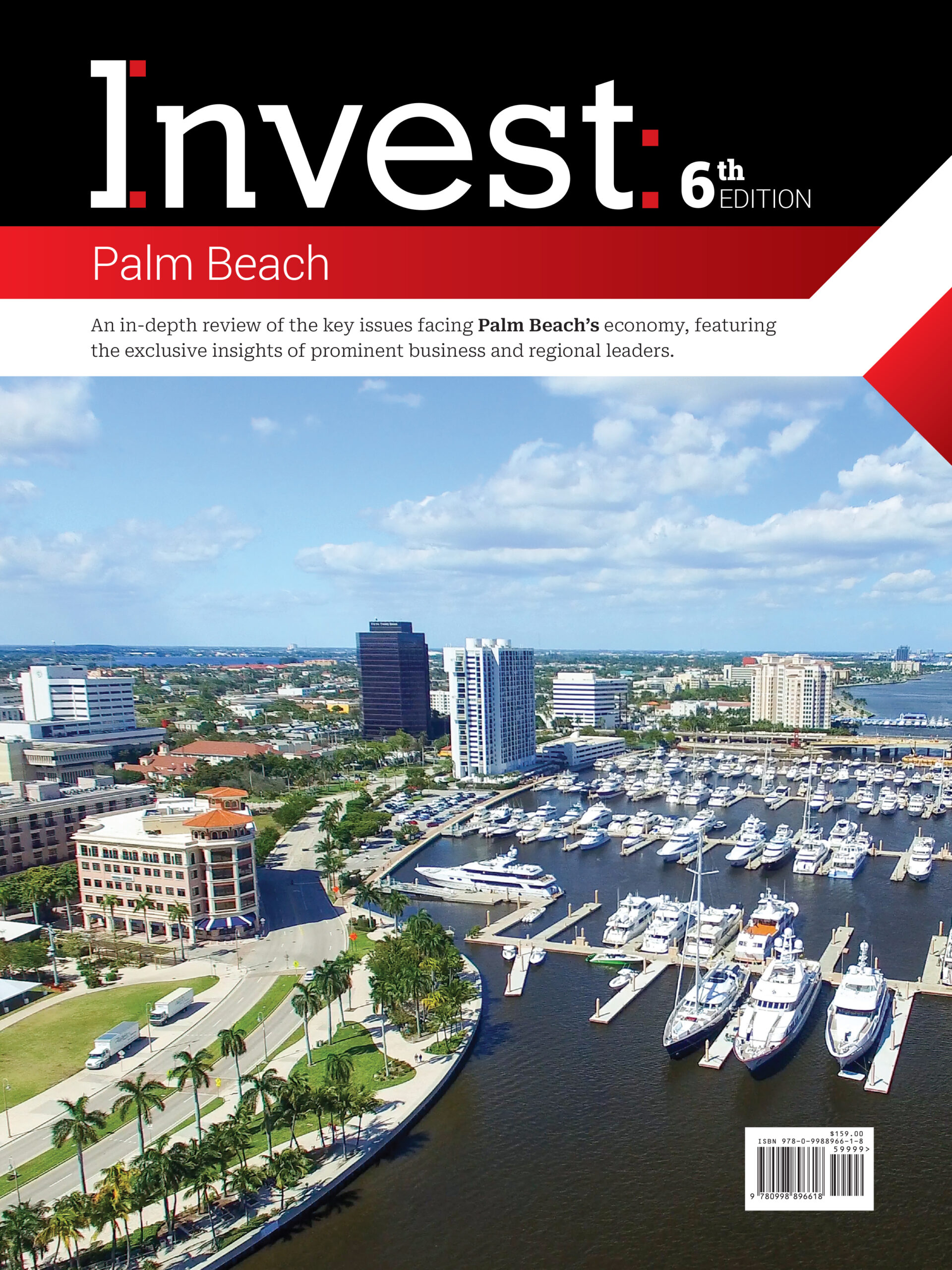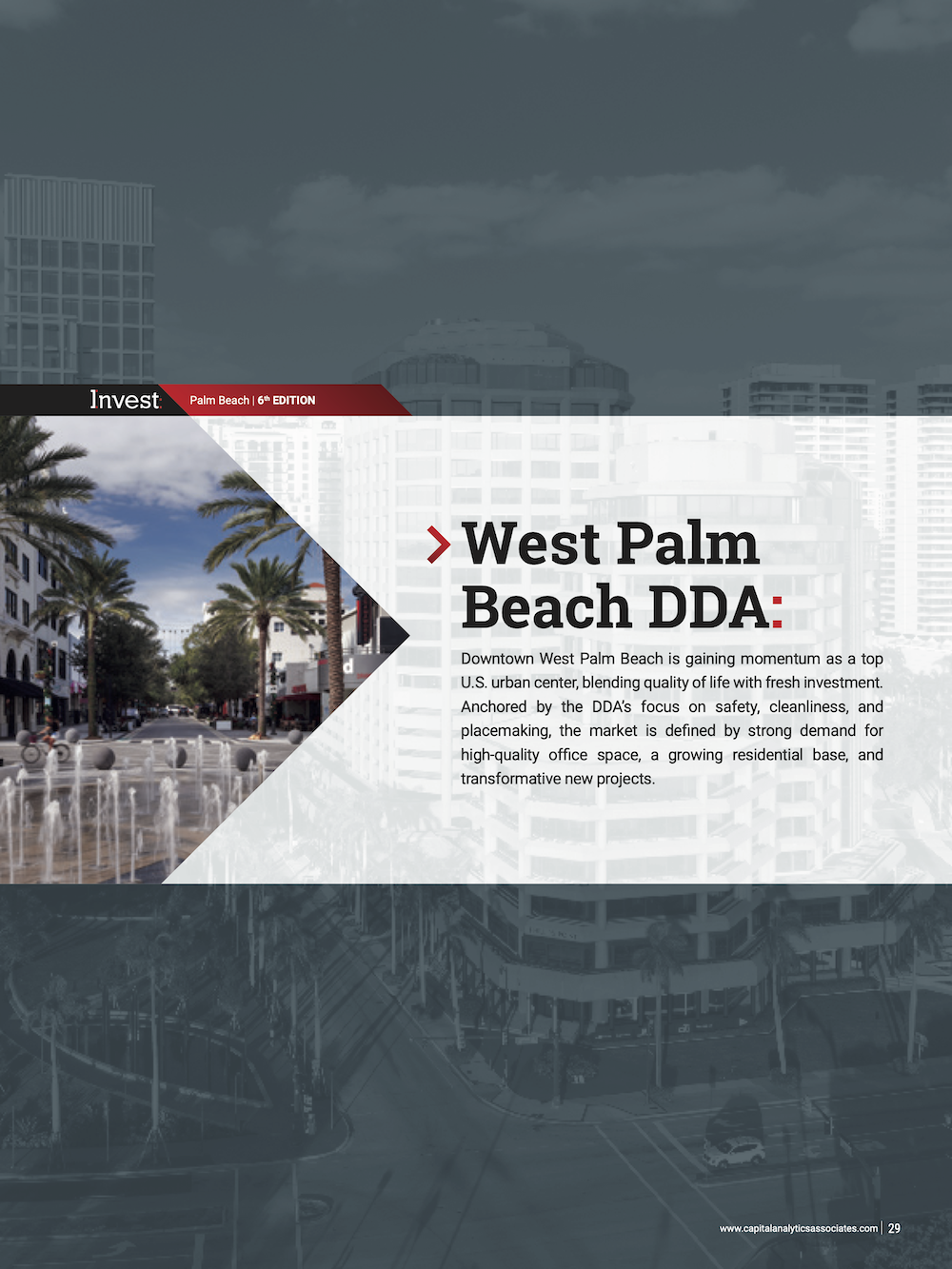Digital transformation shaping professional services in South Florida
By Eleana Teran

June 2025 — Once a novelty, digital transformation is now a necessity. As AI becomes embedded in the modern economy, business and civic leaders are rethinking how work gets done. But for all the focus on tech, the real transformation starts with people, bold decisions, and effective leadership.
Gen AI — referring to AI that can produce new content — could add between $2.6 trillion to $4.4 trillion in annual value to the global economy, according to a report by McKinsey Global Institute.
With nearly every industry now experimenting with advanced digital tools, ranging from personalized financial services to predictive manufacturing, South Florida is stepping into the spotlight as a region not only determined to avoid falling behind but to stay at the forefront.
In Greater Fort Lauderdale, where professional services and regional competitiveness are central to the economy, the question has become not whether to transform, but how to do so in a way that aligns with long-term business resilience and regional competitiveness.
“To achieve transformation, everyone in the organization has to be focused on it,” said Ron Moffett, EVP of Administration at CareerSource, during the recent Invest: Greater Fort Lauderdale 7th Edition Leadership Summit.
“If you enter the cocoon as a caterpillar, you can’t come out as a caterpillar. Transformation requires metamorphosis. It’s more than just implementing new systems. It’s about reshaping how people think and act and embracing a new mindset across the organization,” Moffett added.
He was joined by Vera Nieuwland of Kaufman Rossin, Romney Rogers of RMZ Law, and Michael Platner of Lewis Brisbois on a panel, titled “Digital transformation: How South Florida’s business and civic leaders are embracing digital tools to streamline operations, upskill talent, and stay competitive in an increasingly tech-driven economy.”
Moderated by Jonathan Osborne of Gunster, the conversation reflected a shared understanding: digital transformation is no longer a future goal, but an urgent priority.
For Nieuwland, director of digital transformation services, the process is an ongoing shift. “It’s not a five-year project with a clear endpoint. It’s a constant evolution, but a continuous effort to improve how we operate, how we serve clients, and how we equip our employees with the tools they need,” said Nieuwland.

That mindset led the firm to invest heavily in data infrastructure, launching more than 100 internal dashboards that support decision-making and lay the foundation for automation, which reflects a broader pattern among forward-looking organizations.
As noted in a report by MIT Technology Review Insights, companies are prioritizing flexible, scalable, and efficient data infrastructures that can democratize access to data and analytics, while enhancing security and keeping costs manageable.
Platner pointed to the trial-and-error nature of the transformation. “It’s really easy to make mistakes in this space, and the best advice I can give is to learn from them quickly,” he said.
The era of AI is still in its early stages, according to McKinsey. While initial pilots show promise and there is widespread enthusiasm, realizing its full value will take time. According to the report, leaders must address diverse challenges, from managing the risks inherent in emerging technologies to rethinking core business processes and preparing workers for entirely new roles. “The key is being ready to make mistakes and not getting discouraged by them. It’s all part of a multi-step process toward successful digital transformation,” Platner said.
At RMZ Law, the shift towards digitization is measured carefully along the firm’s legacy and values. “Trustworthiness is critical, and confidentiality is a huge part of that. We are still working through how to manage that with new technologies,” said Rogers. As legal and client-service industries weigh the adoption of AI-powered tools and other technologies, concerns around data security, model reliability, and intellectual property are top of mind. There are governance challenges that often exceed existing frameworks, requiring companies to adopt unified, transparent strategies to mitigate risks like data breaches, bias, and copyright issues.
The human side of transformation remains one of the region’s biggest challenges — and opportunities. “We’re in a tight labor market, and we can’t just hire our way out of it,” Moffett said. “We are putting out a request for proposals to create an AI guidebook, a playbook to help small and medium-sized businesses understand how to adopt and leverage AI for competitive advantage, not just see it as a disruption.”
His comments echo national trends. According to a recent Owl Labs survey, 56% of U.S. employers now encourage AI use on the job, a sharp increase from just 44% in the previous year. But the shift has also sparked concerns about job security, skill gaps, and generational divides.
As digital transformation becomes more embedded in a company’s DNA, leaders are pushing for resources that help businesses move forward with clarity, not fear.
To access the Invest: Greater Fort Lauderdale 7th Edition report, click here. (Subscription required.)
For conference panel discussions, please subscribe and stay tuned to our YouTube Channel as those videos are released in the coming weeks.

WRITTEN BY












